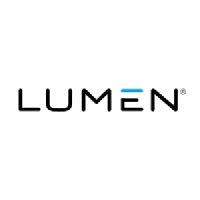TIME dotCom Bhd
KLSE:TIMECOM
Profitability Summary
TIME dotCom Bhd's profitability score is hidden . We take all the information about a company's profitability (such as its margins, capital efficiency, free cash flow generating ability, and more) and consolidate it into one single number - the profitability score. The higher the profitability score, the more profitable the company is.
Profitability Score
We take all the information about a company's profitability (such as its margins, capital efficiency, free cash flow generating ability, and more) and consolidate it into one single number - the profitability score. The higher the profitability score, the more profitable the company is.
We take all the information about a company's profitability (such as its margins, capital efficiency, free cash flow generating ability, and more) and consolidate it into one single number - the profitability score. The higher the profitability score, the more profitable the company is.
Profitability Score
Margins
Earnings Waterfall
TIME dotCom Bhd
Margins Comparison
TIME dotCom Bhd Competitors
| Country | Company | Market Cap |
Operating Margin |
Net Margin |
||
|---|---|---|---|---|---|---|
| MY |
T
|
TIME dotCom Bhd
KLSE:TIMECOM
|
11.3B MYR |
Loading...
|
Loading...
|
|
| US |

|
AST SpaceMobile Inc
NASDAQ:ASTS
|
34.2B USD |
Loading...
|
Loading...
|
|
| US |

|
EchoStar Corp
NASDAQ:SATS
|
31.9B USD |
Loading...
|
Loading...
|
|
| US |

|
Lumen Technologies Inc
NYSE:LUMN
|
8.2B USD |
Loading...
|
Loading...
|
|
| ID |

|
Indoritel Makmur Internasional Tbk PT
IDX:DNET
|
127.7T IDR |
Loading...
|
Loading...
|
|
| US |
G
|
Globalstar Inc
AMEX:GSAT
|
7.3B USD |
Loading...
|
Loading...
|
|
| UK |

|
Liberty Global PLC
NASDAQ:LBTYA
|
3.9B USD |
Loading...
|
Loading...
|
|
| BM |

|
Liberty Global Ltd
F:3O41
|
3.1B EUR |
Loading...
|
Loading...
|
|
| JP |

|
U-Next Holdings Co Ltd
OTC:USNNF
|
2.5B USD |
Loading...
|
Loading...
|
|
| AU |

|
Uniti Group Ltd
ASX:UWL
|
3.4B AUD |
Loading...
|
Loading...
|
|
| NZ |

|
Chorus Ltd
NZX:CNU
|
4B NZD |
Loading...
|
Loading...
|
Return on Capital
Return on Capital Comparison
TIME dotCom Bhd Competitors
| Country | Company | Market Cap | ROE | ROA | ROCE | ROIC | ||
|---|---|---|---|---|---|---|---|---|
| MY |
T
|
TIME dotCom Bhd
KLSE:TIMECOM
|
11.3B MYR |
Loading...
|
Loading...
|
Loading...
|
Loading...
|
|
| US |

|
AST SpaceMobile Inc
NASDAQ:ASTS
|
34.2B USD |
Loading...
|
Loading...
|
Loading...
|
Loading...
|
|
| US |

|
EchoStar Corp
NASDAQ:SATS
|
31.9B USD |
Loading...
|
Loading...
|
Loading...
|
Loading...
|
|
| US |

|
Lumen Technologies Inc
NYSE:LUMN
|
8.2B USD |
Loading...
|
Loading...
|
Loading...
|
Loading...
|
|
| ID |

|
Indoritel Makmur Internasional Tbk PT
IDX:DNET
|
127.7T IDR |
Loading...
|
Loading...
|
Loading...
|
Loading...
|
|
| US |
G
|
Globalstar Inc
AMEX:GSAT
|
7.3B USD |
Loading...
|
Loading...
|
Loading...
|
Loading...
|
|
| UK |

|
Liberty Global PLC
NASDAQ:LBTYA
|
3.9B USD |
Loading...
|
Loading...
|
Loading...
|
Loading...
|
|
| BM |

|
Liberty Global Ltd
F:3O41
|
3.1B EUR |
Loading...
|
Loading...
|
Loading...
|
Loading...
|
|
| JP |

|
U-Next Holdings Co Ltd
OTC:USNNF
|
2.5B USD |
Loading...
|
Loading...
|
Loading...
|
Loading...
|
|
| AU |

|
Uniti Group Ltd
ASX:UWL
|
3.4B AUD |
Loading...
|
Loading...
|
Loading...
|
Loading...
|
|
| NZ |

|
Chorus Ltd
NZX:CNU
|
4B NZD |
Loading...
|
Loading...
|
Loading...
|
Loading...
|

